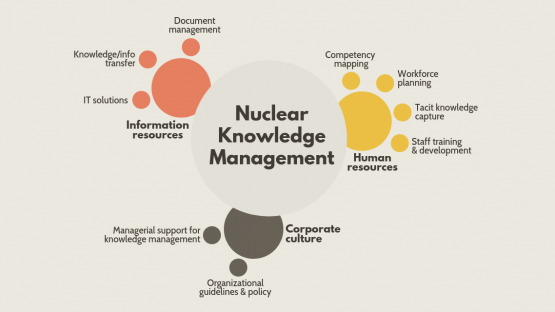Education and training are necessary to ensure that the next generation of nuclear industry professionals are prepared to manage complex nuclear power programmes. Helping national authorities, especially in developing countries, to obtain and manage this knowledge is key to the sustainability of nuclear power. With the closure of the 15th Joint IAEA-ICTP Nuclear Knowledge Management School today, the IAEA celebrates a milestone of training over 700 young professionals, since the inception of the Nuclear Knowledge Management School in 2004.
Jointly organized by the Abdus Salam International Centre for Theoretical Physics (ICTP) and the IAEA, the Nuclear Knowledge Management School, to date, has trained professionals from over 80 countries and provides participants with specialized education and training on the development and implementation of nuclear knowledge management programmes in nuclear science and technology organizations. Topics include, among others, human resource development, developing policies and strategies in managing nuclear knowledge, managing nuclear information resources, risk of knowledge loss and knowledge transfer.
“Nuclear technology is complex and multi-disciplinary. In order to ensure safety, each country has a responsibility not only to establish adequate technical knowledge and expertise in their nuclear organizations, but also to maintain this knowledge and ensure its availability,” said Wei Huang, Director of the Division of Planning, Information and Knowledge Management. “This is why the IAEA heeded calls from its Member States in the early 2000s, to establish a knowledge management programme.”
Nuclear knowledge management has become an increasingly important element of the nuclear sector in recent years, not only because of challenges posed by capacity building needs, an ageing workforce, declining student enrolment in science and engineering programmes, but also because having an effective knowledge management programme in place is crucial for the development of a sustainable safety culture.
“We have helped our organization identify, transfer, preserve and spread critical knowledge, especially as we face the retirement of our ageing workforce,” noted Belgica Villalobos, Head of Organizational Development in Human Resources at CChEN. “With the tools I have learned at the School in 2011, I have been able to implement an ‘in-house’ nuclear knowledge management system at the Chilean Nuclear Energy Commission.”






